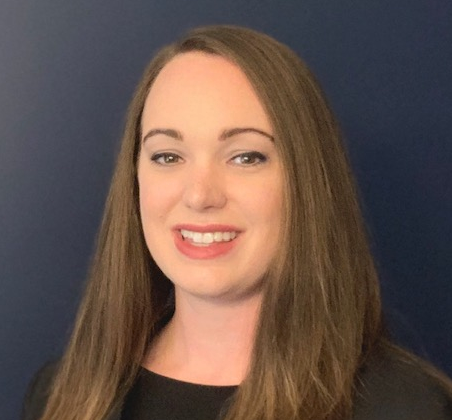What Our Graduates Say






The prior authorization process exists to give health insurance companies a chance to review how necessary a medical treatment or medication may be in treating patients. This may sound good, until a patient is stuck with high out-of-pocket costs they weren’t expecting. The varying costs of care are cumbersome to understand, and often leave patient and providers frustrated without a clear path forward.
More than nine in 10 physicians (93%) reported care delays while waiting for insurers to authorize necessary care, and 82% said prior authorization can lead to treatment abandonment because of prior authorization struggles with their insurance company. The American Medical Assocation
The Prior Authorization Certified Specialist (PACS) program is the only program focused on the information necessary to be a successful access and reimbursement professional. Ensuring patient access can be hard work, and PACS will showcase your expertise in this area.
This comprehensive, 12-module, self-paced and online program is designed to foster the professional development of allied health and life science professionals who work with payers to navigate the prior authorization landscape. With a PACS certification, you demonstrate that you’ve mastered the highest standard of knowledge through extensive experience, intensive study, assessment, and evaluation.






Align the goals of authorizers with the expectations of patients and payers
Understand the prior authorization landscape to improve patient access
Reinforce knowledge of federal, state, and commercial health plans
Learn how to process prior authorizations by navigating the communication expectations of payers
Broaden your knowledge of special considerations for disease states, services, and product types that can influence the patient’s journey to better health
Improve confidence when handling denials and submitting appeals
Module 1 lays the foundation for understanding the prior authorization landscape. This module goes over what prior authorization is, how it came to be, and who is involved in this utilization management process.
Module 2 covers insurance policies, payments, and copay assistance. Processing prior authorization requires knowledge of federal, state, and commercial health insurance, drug tiering, formularies, and determining insurance eligibility. To help unserved patients who cannot afford prescriptions, there are patient assistance programs and copay programs designed to help patients gain access to necessary medications.
Module 3 mitigates risk surrounding compliance standards in the industry by reinforcing law and ethical practice. For reimbursement, it is expected that authorization professionals protect patient information to the standard of HIPAA and ensure accurate coding.
Module 4 explains in detail the components of the medical record and prescription to aid in the authorization process. Valuable information is conveyed in these documents and can help the authorization find information efficiently and successfully.
Module 5 focuses in the value of medical documentation and coding to apply to the prior authorization request. Understanding the ICD-10, CPT, and HCPCS codes as well as medically accepted indications and medical necessity will support the authorization process.
Module 6 provides in-depth explanations of the communication methods for the prior authorization process. Effective communication with the payer is imperative for submitting a prior authorization and receiving updated status for the patient.
Module 7 takes a step-wise approach to the submissions of prior authorization for both medical benefits and prescription benefits. This approach is from the provider perspective to ensure all steps are appropriately taken and the risk of denial is minimized.
Module 8 covers the broad scope of specialties and clinical practice which require authorization. Some services require additional attention, including diagnostic and interventional radiology, oncology, specialty medication, infusion services, J code medications, durable medical equipment, and various therapies. The function is not to memorize the special cases, but to critically think through the workflows.
Module 9 provides guidance on how to request and achieve an out of network waiver for special cases. This is particularly important for patients who experience limited accessibility and mobility or require particular specialists.
Module 10 discusses the frequent coverage determinations for medication claims that require additional considerations. This includes quantity limits, tier exceptions, step therapy, step therapy exceptions, and non-formulary exceptions. Considerations are also made for high-risk medications, opioids, Medicare Part B vs Part D, End Stage Renal Disease, hospice, and Drug Utilization Reviews.
Module 11 describes the denial process and how to overturn the decision with an appeal. Strategic methods exist to review the application for authorization and to appeal with success.
Module 12 presents the future of prior authorizations on a macro level and opportunities in the field as an individual. Prior authorizations continue to expand as the healthcare industry adapts to new challenges.
The Prior Authorization Certified Specialist Program (PACS) is an official certification accredited by the International Association for Continuing Education and Training/ American National Standards Institute (IACET/ANSI). NBPAS is also a member of the Institute for Credentialing Excellence.
More program infoThe Prior Authorization Certified Specialist program (PACS) content was developed by over 30 subject matter experts from academia, managed care, benefit managers, health plans, and experts from the pharmaceutical industry.
Every 3 years you are required to maintain your certification. You can do this by either (1) completing 10 hours of continuing education credits approved by the NBPAS or (2) taking the board exam.
Yes. The NBPAS offers a flexible payment plan where you can pay in 3 easy installments. Additionally, you can use PayPal credit if you qualify.
See payment infoNBPAS is proud to offer scholarships to all of our eligible enrollees. Please contact us for more information, or view the scholarships information page.
Scholarship infoThe Prior Authorization Certified Specialist program (PACS) takes on average about 10-12 hours to complete. It is self-paced, so everyone will be different.